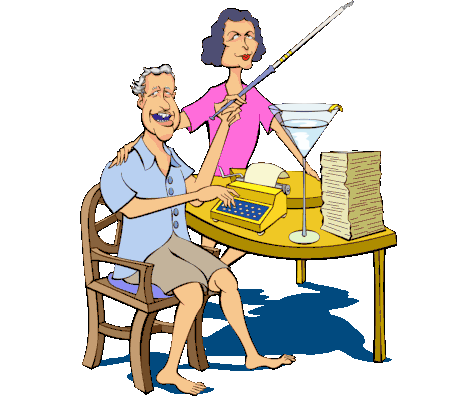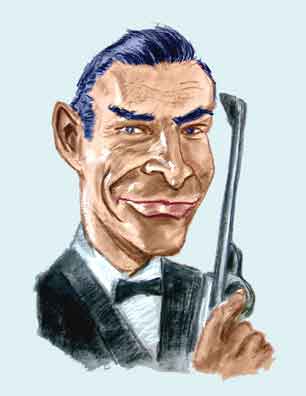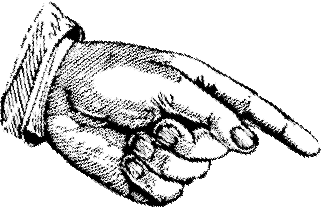
"Then he lit his seventieth cigarette of the day and sat down at the writing-table ..." - Casino Royale
Although this sentence referred to the fictional spy James Bond, Agent Number 007 of the British Secret Intelligence Service, it could equally have applied to his creator, Ian Fleming. Ian smoked at least 2 packs a day of tailor made cigarettes from a - and we quote - "fragrant but powerful Morland Balkan mixture with three gold rings round the paper". And we might also add, "and downed his seventh martini of the evening". And that was after Ian cut down!1
Footnote
At one point and before Ian followed his doctor's advice, he was knocking back a bottle a day.
Ian Lancaster Fleming was from the British uppercrust. His dad, Valentine, was a Member of Parliament and the son of a wealthy banker, but he was killed in action during World War I when Ian was only eight. However, Ian's mom, Evelyn Beatrice Sainte Croix Rose, was also from the Albion haut monde and Ian and his brother Peter were packed off to the ubiquitous English boarding schools. These posh establishments are strangely named public schools even though they are anything but.
Ian did well in athletics, less so in academics. But he was able to get admitted into Sandhurst Military Academy which was England's West Point. But befitting a mediocre student at one of the world's greatest military universities he never graduated. So his mom helped land him some jobs from being a foreign correspondent in Russia to stock broker. A plan to get him into the government Foreign Service was, alas, a bust.
Peter, though, graduated from Oxford with a first class degree and managed to establish himself as a popular travel writer. And with his rugged good looks he was every inch the strapping English adventurer who would ramble round the world from Africa to the Arctic. He wrote articles for magazines and his books were published by the prestigious firm of Jonathan Cape.
We see then that Ian was definitely the under-achiever of the family. So it was all the more strange that this dropout from Sandhurst found his métier in World War II. But he did have a real knack for meeting influential people. From his not terribly successful banking and stock broking jobs, he had established connections that ultimately led to him being selected for the good, albeit not always cushy job of assistant to Admiral John Godfrey. The Admiral was in charge of the Royal Navy Intelligence Service.
Ian did well and although he never was actually in action himself, he organized groups of commandos and spies against the Germans. After the war he remained in the Royal Naval Volunteer Reserve (RNVR) as a lieutenant-commander.
With his now impressive credentials, Ian joined the North American Newspaper Alliance (NANA). Of course, it helped that the post-war owners were two of his friends and who hired him both as executive and reporter. At one point Ian interviewed underwater explorer Jacques Cousteau who had discovered an ancient sunken ship with over 1500 amphora - clay wine jars - still on board. Some of the jars still had the clay seals intact and the contents inside. Jacques even sampled some of the 2000 year old wine which he said tasted terrible.
As part of his agreement with NANA, Ian worked nine months and had three months off. During the war he had attended a conference in Jamaica and now he decided to spend his free time on the north coast of the island and about four miles northwest of the city of Port Maria. He built a house there and like many Englishmen he gave his home a name. He picked "Goldeneye" possibly after the name of one of his wartime projects.
In March of 1952, the long-time bachelor (Ian was 43) married Ann Charteris. Ann had been married before and like Ian, she came from a wealthy and aristocratic family. So with their pooled resources they could manage quite well, thank you.

Secret Agent 007
Ian had decided to use his time in Jamaica to write books. So in early 1952 he began writing a spy novel. Ian liked to pick names of real people for his characters and he owned a copy of Birds of the West Indies written by an ornithologist from the Academy of Natural Sciences of Philadelphia named James Bond. So James Bond, Secret Intelligence Service Agent 007, began his adventures.
In 1953 and with a bit of prodding from Peter and some reluctance, Jonathan Cape agreed to publish the book which was titled Casino Royale. Much of the plot is about a baccarat game played between Bond and the evil enemy agent Le Chiffre. Le Chiffre works for the Russians but has been squandering their money. So he's attempting to recoup his losses by playing baccarat. In baccarat the players can compete against each other and James has been assigned to beat Le Chiffre so he'll fall afoul of SMERSH, (СМЕРШ), the branch of the Russian secret service whose full name is "Death to Spies" (Smert Shpionam, Смерть Шпиoнам).
Although James is supposed to be an expert gambler, he tells his boss, Admiral Sir Miles Messervy, (known as M.2) that the odds at baccarat are the best after playing trente-et-quarante. That Bond thinks the odds of one game are better after playing another seems to suggest that he is a believer in the maturity of chances which is better known as the Gambler's Fallacy. But despite his questionable rationale, Bond bests Le Chiffre at the tables.
Footnote
It's in the third book that we learn M.'s first names is Miles although his last name is only stated as M*******. It's not until Ian's last book, The Man With the Golden Gun, that we learn M.'s full name.
To the publisher's surprise Casino Royale sold well, and the following year a television adaptation was aired on CBS. We don't know if Ian approved of the script where the hero is the 
 secret agent "Jimmy" Bond (played by Barry Nelson), Vesper Lynd becomes Valerie Mathis (Linda Christian), and helping "Jimmy" out is Clarence Leiter of the
secret agent "Jimmy" Bond (played by Barry Nelson), Vesper Lynd becomes Valerie Mathis (Linda Christian), and helping "Jimmy" out is Clarence Leiter of the 
 Secret Service (played by Michael Pate). Peter Lorre was cast as Le Chiffre. In the "torture scene" Le Chiffre squeezes "Jimmy's" toes with a pair of pliers instead of as in the book where Le Chiffre uses a carpet beater to whack James on his ... well, read the book to find out.
Secret Service (played by Michael Pate). Peter Lorre was cast as Le Chiffre. In the "torture scene" Le Chiffre squeezes "Jimmy's" toes with a pair of pliers instead of as in the book where Le Chiffre uses a carpet beater to whack James on his ... well, read the book to find out.
Despite their initial doubts, the publishers gave Ian a decent deal. He'd get 10% for the first 10,000 copies, with graded increases up to 20,000 copies when he'd get 20%. The book sold well in England at 10s 6d (that's 10 shillings and 6 pence for the Yanks). Although a bit over 12d per copy may seem cheap, selling 10,000 copies would have given him £525. But at that time that was more than the yearly wage of the average UK worker.
With the success of Casino Royale the publishers contracted Ian for another three books. These were Live and Let Die, Moonraker, and Diamond's Are Forever. A fourth book, From Russia with Love also did well and got good reviews.
However, with the publication of Dr. No in 1958, the curmudgeons stepped in. The critics began to grump there was both amorality and immorality in the books. After all, as we learn in Moonraker Bond has three girlfriends, all of whom are married. He also doesn't have a very democratic philosophy regarding the ladies and grouses that what he sees as failings in certain women are because they were given the right to vote. One reviewer even called Dr. No "the nastiest book I've ever read" and Ann herself once wrote rather jokingly to a friend that "I love scratching away with my paintbrush while Ian hammers out pornography next door." Actually Dr. No is one of the better Bond books and would scarcely bring a blush to the cheeks of today's most maidenly of aunts (sophisticated maidenly aunts, that is). Ultimately Bond manages to best Dr. No in a way that, well, that stinks.
We have to be honest and say that the marriage of Ann and Ian was never a contented one. Certainly they spent a lot of time away from each other and since both came from wealthy English families they had country homes in England where they could sojourn to without the other. They also both made - we'll call them - "friends" where staying apart from your spouse had it's advantages.
Even as a relatively young man Ian had developed a number of health problems ranging from sciatica to an attack of kidney stones so severe that his doctor prescribed morphine. He also had developed persistent chest pains and had consulted a specialist who, although finding no evidence of heart disease, recommended Ian cut back his drinking. Or failing that at least to switch from gin to bourbon.3
Ann also had some health issues (like use of barbiturates) and when Ian was writing From Russia With Love, she booked a stay at Enton Hall, a "health farm" in Surrey about 30 miles southwest of London. The cost was about £20 a week which sounds cheap but translated into today's currency is about $600. Nevertheless, Ann found the abstemious regimen of rest and healthy food beneficial and at her prodding Ian agreed to give Enton a try. His stay found its way into the more entertaining and best written chapters in Thunderball where M., alarmed at Bond's unsatisfactory physical, orders him to spend two weeks at "Shrublands" a "naturopathic" health clinic in Washington. No, this wasn't Washington, D. C., but is a small town about six miles north of Worthing on England's south coast and about twelve miles northwest of Brighton.
Ian didn't take the rest cure very seriously. We have to wonder if he spent his free time like some of the less resolute Shrublands guests as described by the young taxi driver in Thunderball:
"Grown people, some of them pretty big shots in the City and so forth, and they motor around in their Bentleys with their bellies empty and they see a tea-shop and go in just for their cups of tea. That's all they're allowed. Next thing, they see some guy eating buttered toast and sugar cakes at the next table and they can't stand it. They order mounds of the stuff and hog it down just like kids who've broken into the larder - looking round all the time to see if they've been spotted."
Of course, a cholesterol rich diet supplemented by seventy cigarettes and several martinis a day can catch up with you. In 1961 Ian suffered a major heart attack during a meeting at the offices of the Sunday Times. He recovered but his chest pains were now diagnosed as angina which is from a reduction of blood to the heart. The pain was sometimes so severe that Ian could hardly function.
By 1963, even Ian had to admit he was in poor health. He was so easily fatigued that just standing up would cause his pulse to race. When in England there were days when all he could do was sit on a bench outside a seaside hotel. Ann decided her presence was causing Ian more problems than comfort and arranged for a full time nurse to take care of him. Back home in Jamaica, Ian was able to work on his twelfth novel, The Man With the Golden Gun, for only an hour and a half a day.
By 1964 Ian's behavior was becoming strange. He began expressing fear of the color black and the number thirteen. He became overly anxious when riding in cars and he began to complain his sweaters were dirty when they were actually spotless. He also justified his diving into a swimming pool by saying his doctor advised him not to swim, but hadn't said anything about diving.
Then on July 27, 1964, Ian's mother, Eve, approaching 80, died. Ian followed sixteen days later. He was 56.
References and Further Reading
The World Is Not Enough: A Biography of Ian Fleming, Oliver Buckton, Rowman amd Littlefield, 2021.
Ian Fleming: The Man Who Created James Bond, Andrew Lycett, Macmillan, 2013.
Goldeneye - Where Bond Was Born: Ian Fleming's Jamaica, Matthew Parker, Hutchinson, Penguin, 2014.
"Follow Ian Fleming’s Footsteps Through Jamaica", Jennifer Billock, Smithsonian, October 4, 2021.
"Scientific Study of James Bond Novels Shows Agent 007 Was a Drunk", Betty Hallock, Los Angeles Time, December 13, 2013.
"Ian Fleming", Theodora Sutcliffe, Difford's Guide.
"2,200 Year Old Wine from Wreck; It Tastes Terrible", Ian Fleming, Milwaukee Journal, April 23, 1953.
"Enton Hall - The Real Shrublands", Edward Biddulph, James Bond Memes, January 8, 2014.
"1953-2003: Then and Now", Martin Wainwright, The Guardian, June 3, 2003.